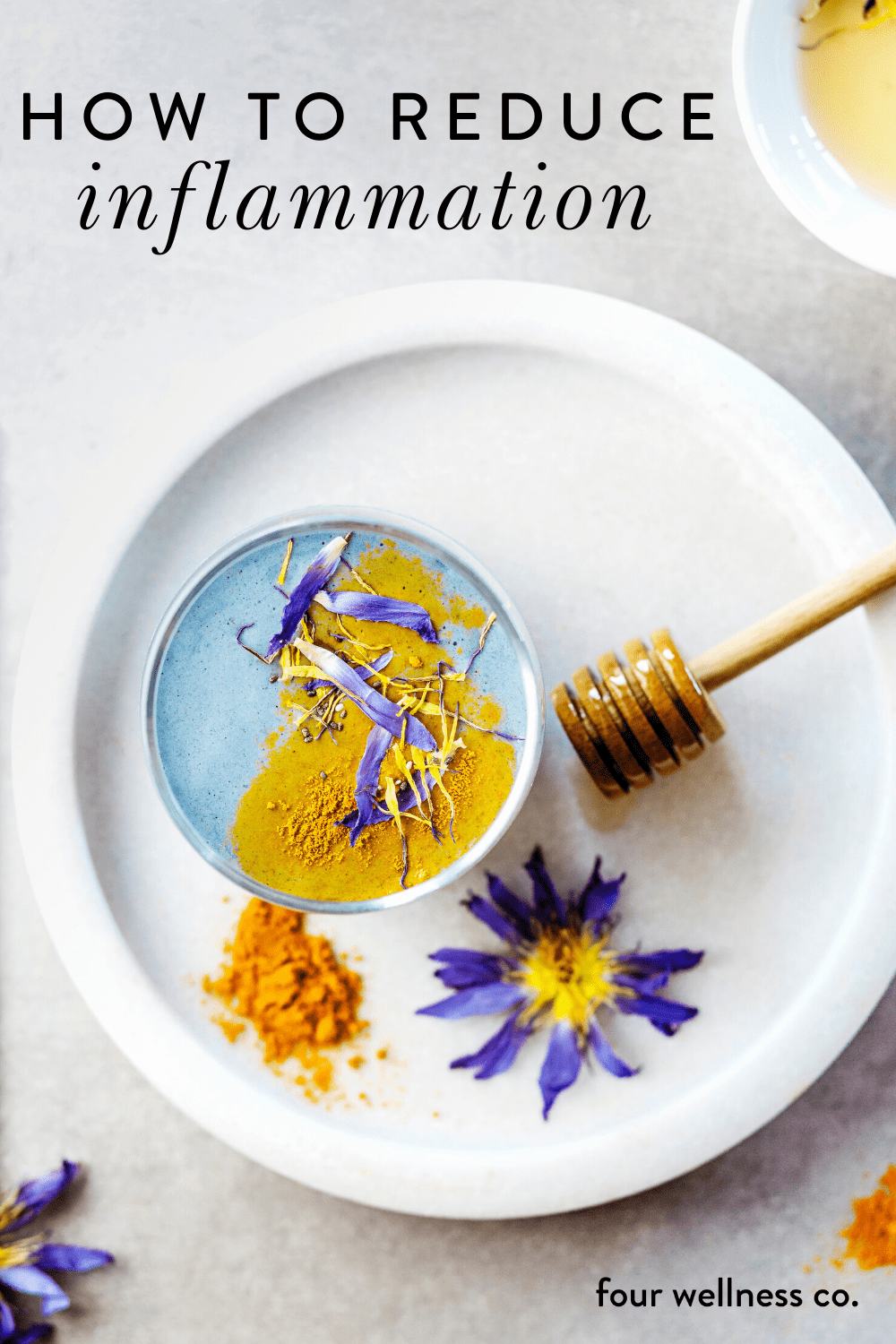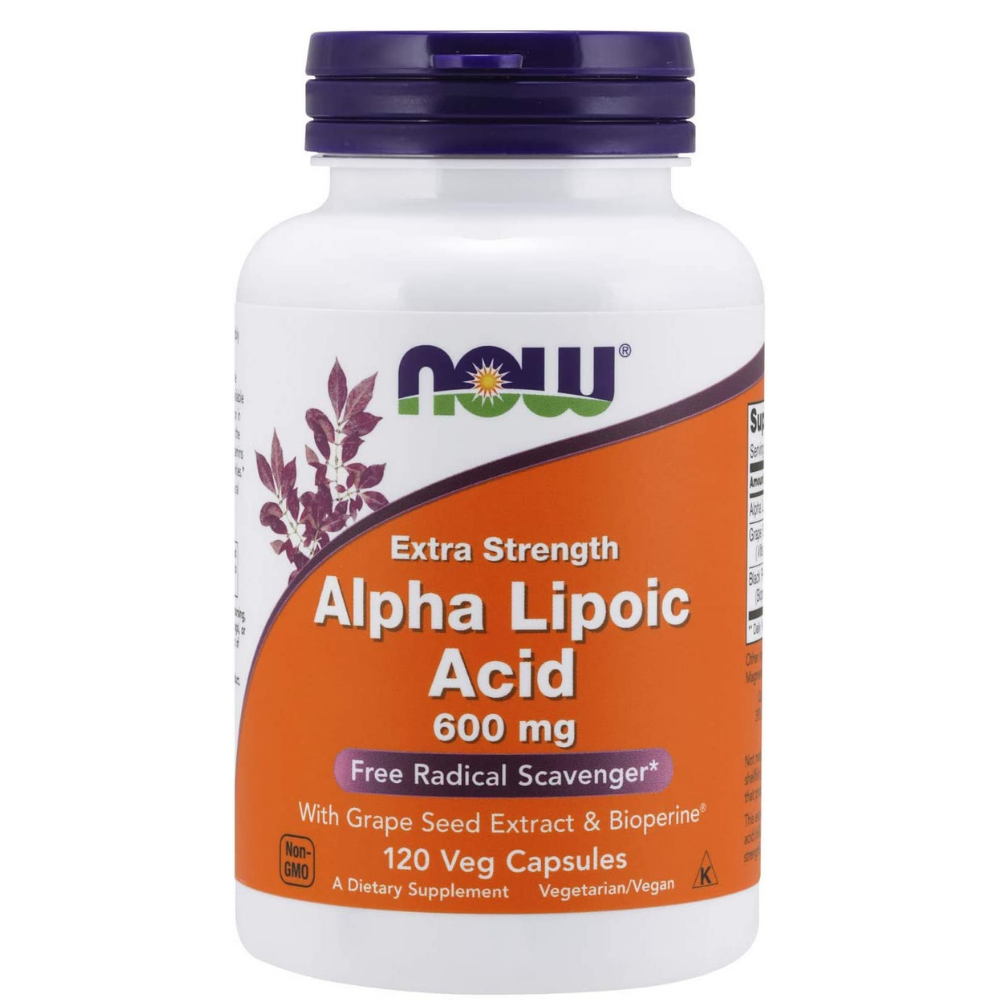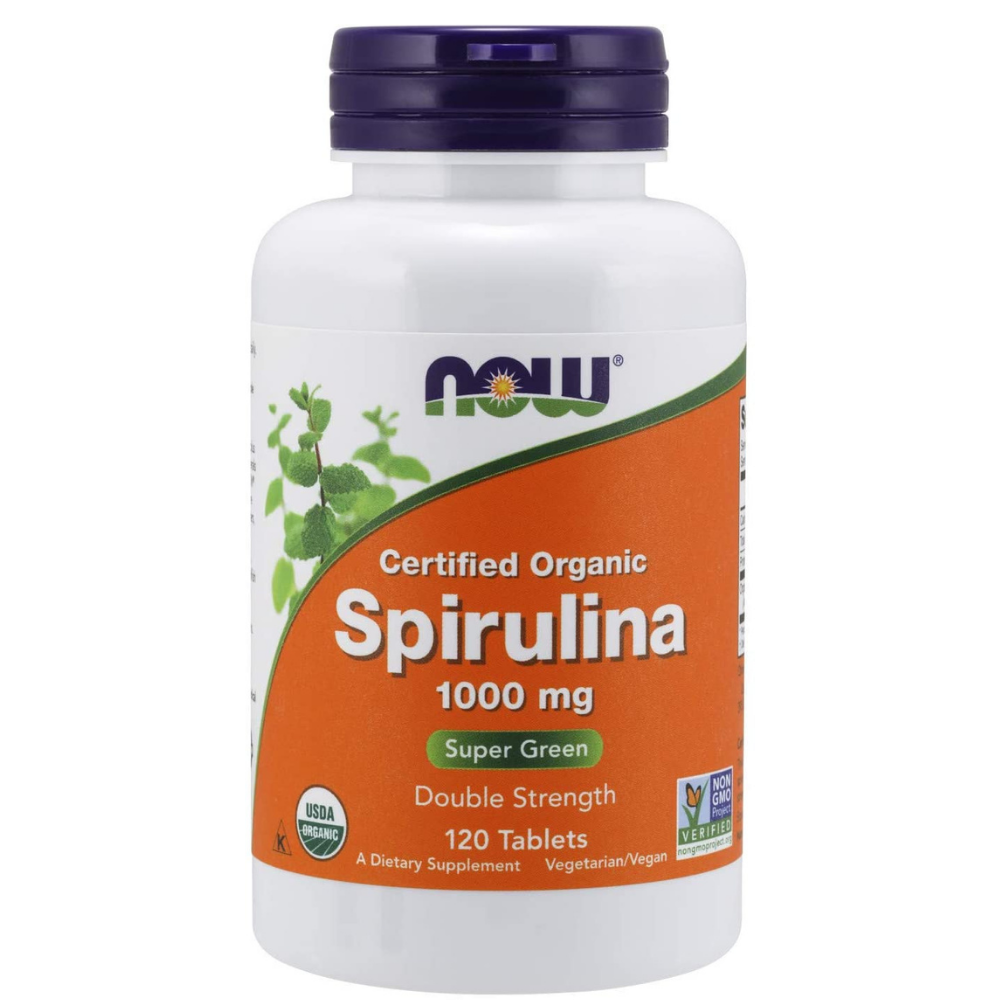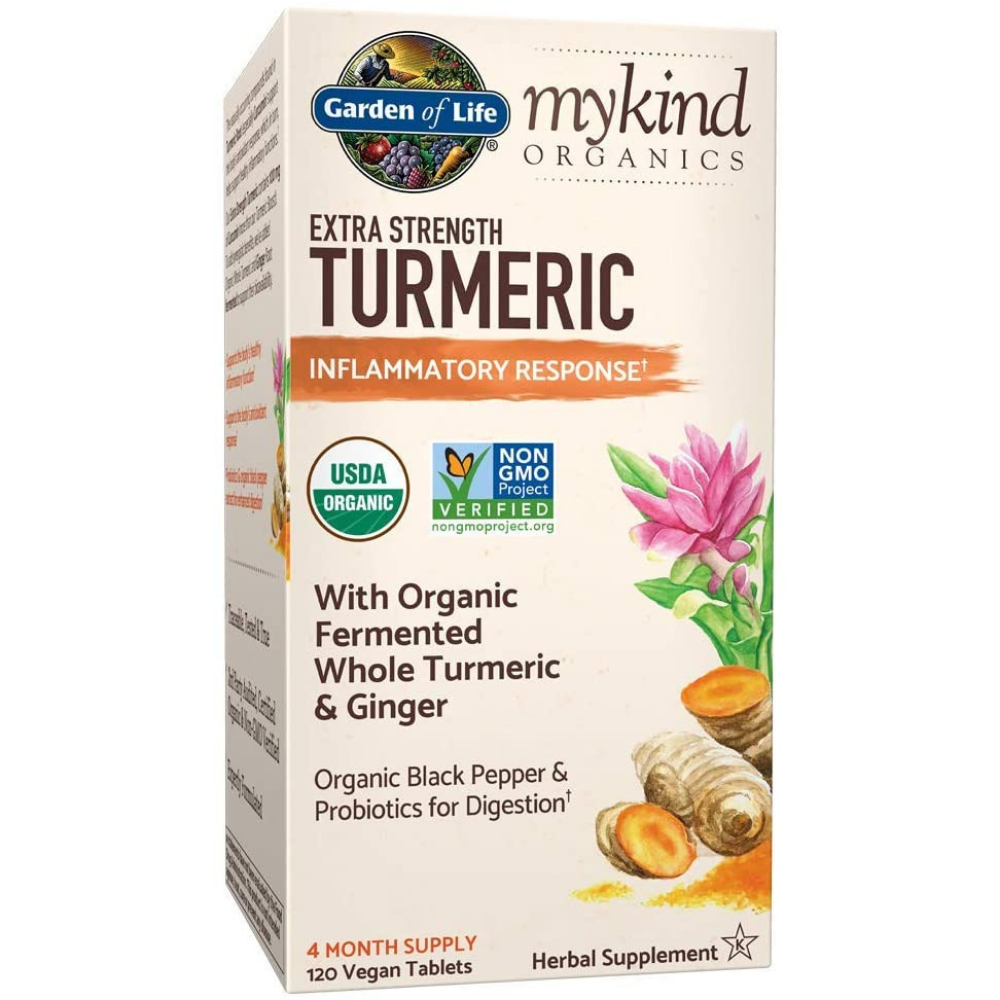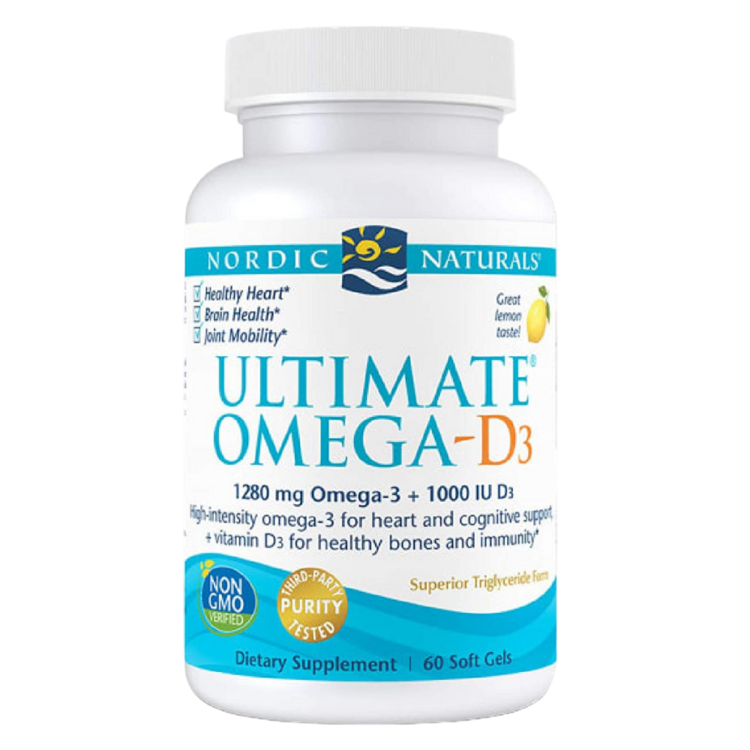How to Reduce Inflammation with Nutrition & Lifestyle
Diabetes. Cancer. Heart Disease. Stroke. Rheumatoid Arthritis. What do these (sometimes deadly) chronic conditions share in common?
All have been linked to chronic, ongoing inflammation (yikes!). To reduce our risk of illness and these scary, adverse outcomes, it’s important to understand the root cause of inflammation and how to prevent it with nutrition and lifestyle.
What is inflammation?
Inflammation stems from our immune system, which is comprised of two branches: innate and adaptive immunity. We are born with the former, innate immunity, which is our body’s first line of defense. Our cough reflex, mucus, skin, and stomach acid are all examples of innate immunity.
Adaptive immunity, on the other hand, is an antigen-specific immune response that develops after an infection or immunization.
Inflammation is more generally associated with innate immunity, a requisite for adaptive immunity.
So what is chronic inflammation?
Inflammation is the body’s immune response to foreign invaders or physical injury. This necessary biological process is a natural defense mechanism that protects the body from harmful stimuli and initiates healing by releasing white blood cells to the site of infection or trauma. While acute inflammation is beneficial in this respect (wounds and infections wouldn’t health without it!), chronic inflammation persisting for a prolonged duration can be quite detrimental.
How can you identify whether an inflammatory response is helpful or harmful? Let’s compare:
Acute inflammation
rapid, severe onset
short duration (days to weeks)
caused by bacteria, viruses, and physical injury or trauma (including surgery)
improves, restoring body to prior state
Chronic Inflammation
slow onset
long duration (months to years)
caused by failure to heal acute inflammation, autoimmune disease, or long-term exposure to an irritant
persists, resulting in tissue damage and chronic disease
While pathogens, irritants, and damaged cells are the primary cause of inflammation, the following common (and more easily avoidable) triggers and risk factors may promote inflammation in the body as well:
toxins, such as alcohol and tobacco (including cigarette smoke)
obesity and excess fat cells, caused by diet high in saturated fat, trans-fats, or refined sugar
poor sleep
lack of exercise
chronic stress
Active inflammation shows up in the body in multiple ways.
What are the symptoms of inflammation?
Symptoms of acute inflammation differ from those of chronic inflammation. Here’s what to know about the difference:
Symptoms of acute inflammation
Acute inflammation (a short-term illness or injury) results in five primary signs:
pain (due to release of chemicals to stimulate nerve endings)
redness (due to increased blood flow to the area)
swelling (due to accumulation of fluid)
heat (due to increased blood flow to the area)
loss of function/mobility (due to a combination of the above)
These symptoms often appear in superficial injury (e.g. on the skin), though not all are present in deeper infection (e.g. internal organs). For example, pain may not occur in areas where there are minimal pain-sensitive nerve endings (such as lung inflammation from pneumonia).
Some examples of acute inflammation are:
viral and respiratory infections like acute bronchitis, strep throat, tonsillitis or sinus infections
skin conditions such as an allergic reaction, scrapes, cuts, burns (including sunburn), infections
food poisoning
urinary tract infection
high-intensity exercise
physical trauma (including surgery)
Symptoms of chronic inflammation
Alternatively, chronic inflammation causes a range of symptoms, many of which appear flu-like. These include (but are not limited to):
generalized pain: joint pain, chest pain, etc.
fatigue
insomnia
mouth sores
gastrointestinal issues
skin rashes
fever
weight gain
depression or anxiety
Some examples of chronic inflammation are:
autoimmune disease such as rheumatoid arthritis, ulcerative colitis, celiac disease, lupus, and psoriasis
asthma
chronic allergies
chronic sinus infections
hepatitis
Due to the wide range of symptoms (and degree of severity), chronic inflammation is often more challenging to diagnose.
How inflammation is diagnosed
The five signs of acute inflammation listed above can be used to clinically diagnose acute inflammation of the skin, though deeper acute infections often require a more thorough physical examination, vitals, and supplemental blood tests or imaging (fever, elevated white blood cell count, and certain radiological findings may aid in determining an appropriate diagnosis there).
Alternatively, detecting chronic inflammation typically involves ruling out other possible diagnoses and testing for general inflammatory markers. If inflammatory disease is suspected, your primary care provider may run a series of blood tests to check for extra protein circulating the bloodstream (released from the site of inflammation).
Elevated levels of these blood tests is indicative of inflammation. However, raised levels do not identify the site and cause of inflammation. Additional testing is necessary, and your primary care provider may refer you to a specialist to help further diagnose and treat the inflammatory disease.
How to treat chronic inflammation naturally
While acute inflammation is often a vital part of the healing process, it may still be helpful to treat. Your doctor may prescribe non-steroidal anti-inflammatory drugs (like ibuprofen, aspirin, etc.) or corticosteroids to reduce inflammation and alleviate pain. (Always follow the guidance of your physician in treating your condition!)
Chronic inflammation has been linked to a multitude of chronic conditions and therefore should be taken very seriously. Chronic, ongoing inflammation is most sustainably managed with lifestyle and nutrition.
Treating chronic inflammation with lifestyle
Lifestyle modifications include:
reducing (and eliminating when possible) environmental and ingested toxins (such as abstaining from smoking and alcohol consumption, and reducing exposure to toxins via foods, cleaning products and personal care products)
improving quality of sleep (here are our recommendations for getting better sleep)
getting regular physical activity
and limiting stress.
Anti-inflammatory diet
Dietary modifications involve reducing consumption of saturated fats, trans-fats, refined sugars, and incorporating anti-inflammatory foods, supplements, and herbs into your diet. The “anti-inflammatory diet” is a style of eating that favors whole, plant-based foods high in healthy fats. Popular examples of anti-inflammatory diets include the Mediterranean diet and DASH diet.
An anti-inflammatory diet focuses on fresh, whole foods:
oily fish rich in omega-3 fatty acids, such as tuna and salmon
lean meats, such as chicken
vegetables, such as spinach, kale (high in vitamin K) and garlic
fruits, such as blueberries (rich in antioxidants)
beans and lentils
nuts and seeds
olives and olive oil
whole grains
spices, such as ginger and turmeric
Anti-inflammatory diets are rich in nutrients, healthy fats and antioxidants.
Inflammatory foods to avoid
If you suspect you have chronic inflammation, are there any foods you should avoid?
Limit (or eliminate altogether) your consumption of foods and beverages that promote an inflammatory response:
processed foods
unhealthy oils (those high in omega-6 fatty acids, such as soy, safflower, and mixed vegetable oils)
high fat and processed red meat, including hot dogs
refined sugar
Stay away from those processed, greasy, overly sweet treats (sorry!). The following foods may also trigger an inflammatory reaction for some:
gluten
carbohydrates
nightshades (tomatoes, eggplant, peppers, potatoes)
Anti-inflammatory supplements
The following supplements can also be incorporated into your diet to reduce inflammatory response:
Anti-inflammatory CBD supplements
There’s also growing evidence that CBD supplementation (cannabidiols from legally grown hemp plants) is beneficial in reducing inflammation throughout the body. Here’s more about the health benefits of CBD, and how it can be used as part of a healthy lifestyle—plus, our recommendations for choosing safe CBD products, and our favorite organic, woman-owned CBD company.
Reduce inflammation with a healthy lifestyle
Anti-inflammatory supplements are just that: supplements that can further enhance a healthy lifestyle. (Though they’re not a replacement for it!)
With the appropriate lifestyle modifications and dietary changes (and perhaps some anti-inflammatory supplements to help), inflammation can generally be reduced and properly managed naturally.
Anti-inflammatory Grocery List
Make it easy! Grab our printable checklist of what to purchase (and what to avoid!) while grocery shopping for an anti-inflammatory diet.
It’s part of our Wellness Library of healthy living guides + resources:
FOUR WELLNESS TIP
Combat inflammation with these lifestyle recommendations, including an anti-inflammatory diet rich in whole, plant-based foods & healthy fats.

